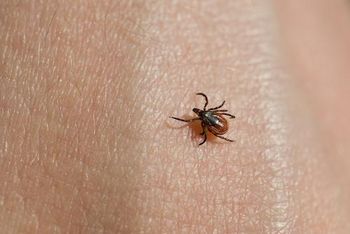
After being hit with severe flooding and a devastating mudslide, thus increasing risk of cholera infection, half a million individuals in Sierra Leone will now have access to a life-saving vaccine.

After being hit with severe flooding and a devastating mudslide, thus increasing risk of cholera infection, half a million individuals in Sierra Leone will now have access to a life-saving vaccine.

NIH scientists have developed a novel organ culture model to study ticks that transmit flaviviruses.

Janssen announces a strategic decision to discontinue the development of investigational hepatitis C treatment, JNJ-4178, a triple-combination drug, consisting of three direct-acting antivirals.

Researchers have developed a map of the networks of B-cells in the human body, shedding light on the intricate workings of the immune system.

Gastroenteritis outbreak response requires effective environmental sampling and, here, we break down a seemingly promising new strategy.

The CDC has launched an educational initiative called “Get Ahead of Sepsis,” which underscores the early recognition and timely treatment of sepsis.

Presentations at the 21st Annual USCA Conference shed light on the fact that although overall rates of HIV are decreasing, some populations are seeing a startling increase.

New research on the Zika virus, how ticks are helping us learn more about HIV, and a rare mosquito-borne virus that has sprung up in the United States, round out the topics for our Top 5 articles of the week.

New research has shown that the devastating effects of the Zika virus on the newborn brain may be the key to destroying glioblastoma in adults.

A NIH network study finds that pre-exposure prophylaxis, approved for daily use in adults, can also reduce chances of HIV infection in young male adolescents.

In a new study on factors that make individuals susceptible to infectious diseases, researchers have found that cholesterol-lowering drugs may reduce susceptibility to certain diseases.

In a new literature review, researchers from the Netherlands postulate that studying fecal microbiota transplantation (FMT) can help identify novel therapeutic targets for metabolic syndromes.

Although the number of fungal infections has fallen in the United States and other developed nations due to the ease of obtaining HIV testing and access to ART, the risk still exists.

Diagnostic methods make all the difference in efforts against antimicrobial resistance.

Researchers suggest the need to consider previous infection with dengue in the development of any new prophylactic modality.

A new review article shows that if a child has a serious reaction to a vaccine, the chances of it happening again are very small.

As the United States enters the final weeks of West Nile virus season, state health officials from around the country report several new deaths caused by the virus.

A relatively rare mosquito-borne virus has hit a couple of US states this summer, and it has health officials urging state residents to protect themselves against mosquito bites.

Although the recent measles outbreak in Minnesota has been declared to be over, its occurrence underscores the need to address the larger issue of vaccine uptake in the United States.

Potentially defective personal protection equipment, patients’ involvement in hand hygiene, probiotics that work against C. difficile, what makes delafloxacin unique, and a new discovery against the herpes virus make up the Top 5 articles for the month of August 2017.

In a recent article, researchers discuss common fungal respiratory diseases in non-immunocompromised patients.

Keck School of Medicine at USC study has found that Zika virus suppresses pregnant women’s immune systems, which enables the virus to spread, causing harm to unborn baby.

A new study suggests that sexual transmission of Zika virus may create a higher risk for fetal disease than transmission via mosquito.

The National Institutes of Health has awarded a 4-year, $4.8 million grant to the University of Arizona to speed up the development of delta-CPS1, a vaccine candidate to fight valley fever.

The new test examines proteins and peptides in saliva using proteomics, the study of proteomes and their functions.

A new study suggested that neonatal sepsis, which kills 1 million infants around the world each year, may be prevented with synbiotic treatment.

NIH study sheds light on the mechanism behind increased cardiovascular risks for those living with HIV.

Stay up-to-date on the latest infectious disease news by checking out this snapshot of our top 5 articles of the week.

A new study is disputing previous findings that the Zika virus persists in semen for up to 188 days.

When it comes to cleaning products that work against Clostridium difficile, a new study has found that wipes are better than sprays.